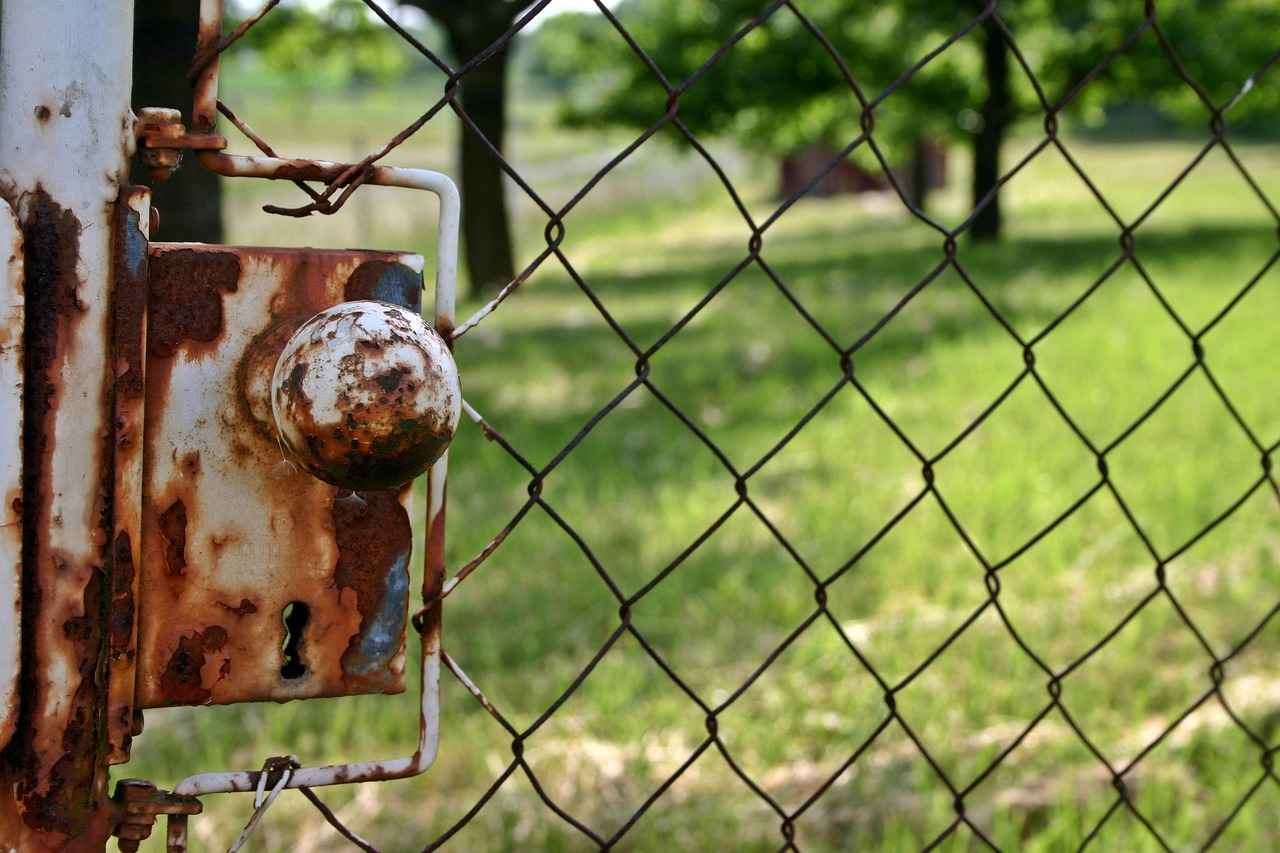This article serves as a comprehensive guide on how to check for liens on a property for free, detailing various methods, resources, and legal implications to help you make informed decisions.
What is a Property Lien?
Understanding what a property lien is crucial for any property owner or buyer. A lien is a legal right or interest that a lender has in the borrower’s property, granted until the debt obligation is satisfied. Liens can arise from various situations, including unpaid taxes, mortgages, or contractor fees.
Why Should You Check for Liens on a Property?
Checking for liens is essential before purchasing property to avoid unexpected financial burdens. Liens can complicate ownership and may lead to significant legal issues if not addressed prior to purchase. Ignoring this step could result in inheriting the seller’s debts and liabilities.
How to Find Free Resources for Lien Searches?
There are several free resources available for conducting lien searches. Local government websites, online databases, and public records can provide valuable information regarding existing liens on properties. Many counties offer online access to their property records, making it easier than ever to check for liens.
What Information Do You Need to Check for Liens?
To effectively check for liens, gather specific information such as:
- The property’s address
- The owner’s name
- Any relevant legal descriptions
This information will streamline your search process and improve the accuracy of your findings.
Steps to Conduct a Lien Search Online
Conducting a lien search online can be straightforward. By following a few simple steps, you can access public records and databases to determine if there are any liens against a property you are interested in:
- Visit the local government or county clerk’s website.
- Navigate to the property records section.
- Enter the required information, such as the property address.
- Review the search results for any existing liens.
What to Do If You Find a Lien on a Property?
If you discover a lien on a property, it’s crucial to understand your options. This may involve:
- Negotiating with the lienholder
- Seeking legal advice to understand your rights
- Considering the implications for your potential purchase
Addressing liens before finalizing a property purchase can save you from future complications.
Conclusion
Understanding how to check for liens on a property for free is an essential skill for any prospective buyer or current owner. By utilizing the resources available and following the outlined steps, you can protect yourself from unforeseen liabilities and make informed decisions regarding your property investments.

What is a Property Lien?
Understanding what a property lien is is essential for any property owner or buyer. A lien represents a legal claim or right that a lender holds over the borrower’s property. This right is typically established as a form of security for a debt obligation, ensuring that the lender can recoup their investment in the event the borrower defaults. Until the debt is fully satisfied, the lien remains in effect, potentially impacting the property owner’s ability to sell or refinance the property.
Liens can arise from various circumstances, including mortgages, tax obligations, and even unpaid contractor bills. For instance, if a homeowner fails to pay property taxes, the government may place a tax lien on the property, which must be resolved before the property can be sold. Similarly, if a contractor is not paid for work performed, they may file a mechanic’s lien, which can complicate the sale process.
It is also important to note that there are different types of liens, including:
- Voluntary Liens: These are liens that the property owner agrees to, such as a mortgage.
- Involuntary Liens: These are imposed by law, such as tax liens or judgment liens.
- Specific Liens: These are attached to a particular property, like a mechanic’s lien.
- General Liens: These can affect all of a debtor’s property, not just a specific asset.
Understanding the implications of a lien is crucial. A lien can prevent the sale of a property or complicate the refinancing process. Buyers should be particularly cautious, as a lien may not only affect the current owner but also transfer to them upon purchase. Thus, it is vital to conduct thorough due diligence before finalizing any real estate transaction.
In summary, a property lien is a significant legal concept that can influence property ownership and financial obligations. By grasping the basics of what a lien is, property owners and potential buyers can make more informed decisions, protect their investments, and avoid potential legal pitfalls.

Why Should You Check for Liens on a Property?
When considering a real estate investment, understanding the financial landscape is crucial. One of the most critical steps in this process is checking for liens on a property. Liens can pose serious risks and complications for potential buyers, making it essential to investigate them before finalizing any purchase.
Checking for liens is essential before purchasing property to avoid unexpected financial burdens. A lien represents a legal claim against a property, which can arise from unpaid debts such as mortgages, taxes, or contractor fees. If these liens are not addressed prior to purchase, they can complicate ownership and may lead to significant legal issues.
- Financial Implications: Liens can result in additional costs that the buyer may not anticipate. For instance, if a property has a tax lien, the new owner may be responsible for settling that debt, which could amount to thousands of dollars.
- Ownership Complications: A property with an unresolved lien may not be transferred to the new owner until the lien is cleared. This can delay the purchase process and create frustration for both parties involved.
- Legal Consequences: If a lien remains on the property, the lienholder may have the right to foreclose on the property to recover the owed amount, putting the buyer’s investment at risk.
Moreover, liens can affect the property’s marketability. A potential buyer might be deterred from making an offer on a property with known liens, or they might offer a significantly lower price to account for the risk involved. This can lead to a loss of value for the seller, complicating the sale further.
Additionally, understanding the type of lien is crucial. There are various types, including mechanic’s liens, which arise when contractors or suppliers are not paid for work done on the property, and judgment liens, resulting from court judgments against the property owner. Each type of lien has its own implications and may require different approaches to resolve.
To avoid these potential pitfalls, it is advisable to conduct a thorough lien search before proceeding with any property transaction. This proactive approach not only safeguards your investment but also ensures that you have a clear understanding of any obligations you may inherit.
In conclusion, checking for liens is a critical step in the property buying process. By being diligent and informed, you can protect yourself from unforeseen financial burdens and legal complications, ensuring a smoother and more secure transaction.

How to Find Free Resources for Lien Searches?
When it comes to property transactions, understanding the presence of liens is crucial. A lien can significantly affect your rights and responsibilities as a property owner or buyer. Fortunately, there are numerous free resources available for conducting lien searches, allowing you to make informed decisions without incurring additional costs.
One of the most reliable sources for lien information is your local government website. Many counties and municipalities have online databases where you can search for property records, including liens. These sites often provide access to public records, which can include:
- Property tax records
- Mortgage information
- Judgment liens
- Mechanic’s liens
To utilize these resources, simply visit your local government’s official website and navigate to the property or tax assessment section. You may need the property address or the owner’s name to conduct your search.
In addition to local government resources, various online databases specialize in property records and lien information. Websites like PublicRecords.com and PropertyShark.com offer comprehensive searches that can reveal liens against properties. While some features may require a fee, many basic searches are free and can provide valuable insights.
Public records are another excellent resource for lien searches. These records are maintained by government agencies and are accessible to the public. You can find them at:
- Your local courthouse
- County clerk’s office
- State or local land registry offices
Visiting these offices in person can be beneficial, as staff members can assist you in navigating the records. Additionally, some jurisdictions allow you to access public records online, making it easier to find the information you need.
To conduct an effective lien search, gather essential information beforehand. Key details include:
- Property Address: The full address is crucial for pinpointing the correct records.
- Owner’s Name: Knowing the current owner’s name can help narrow down your search.
- Legal Description: If available, this description provides precise information about the property boundaries.
Having this information ready will streamline your search process and enhance the accuracy of your findings.
Conducting a lien search online can be a straightforward process. Here are the steps you should follow:
- Visit the relevant local government website or an online database.
- Locate the property records or lien search section.
- Enter the required information, such as the property address or owner’s name.
- Review the search results for any existing liens.
By following these steps, you can quickly determine if any liens exist against the property you are interested in.
If you discover a lien on a property, it is essential to take appropriate action. Options may include:
- Negotiating with the Lienholder: Sometimes, liens can be settled through negotiation.
- Seeking Legal Advice: Consulting a lawyer can help you understand your rights and options.
- Considering Implications: Evaluate how the lien affects your potential purchase and financial obligations.
Addressing any liens before finalizing a property transaction is crucial to avoid future complications.

What Information Do You Need to Check for Liens?
When embarking on the journey to check for liens on a property, it is essential to gather pertinent information that will facilitate a smooth and efficient search process. By collecting the right details, you can significantly reduce the time and effort required to uncover any existing liens. Below are the key pieces of information you should compile:
- Property Address: This is the most crucial piece of information. Include the full address, including street number, street name, city, state, and zip code. The more precise you are, the easier it will be to locate the property in public records.
- Owner’s Name: Knowing the current owner’s name is vital. If the property has changed hands, you may need to research previous owners as well. This helps in tracing any potential liens associated with the property.
- Legal Description: This is a detailed description of the property that can be found in the deed. It may include lot numbers, subdivision names, and other identifiers. The legal description is often necessary when searching through official records.
- Parcel Number: Also known as the Assessor’s Parcel Number (APN), this unique identifier assigned to the property by the local tax authority can expedite your search. It eliminates confusion, especially in areas with similar street names.
- Type of Lien: Understanding the different types of liens—such as mortgage liens, tax liens, or mechanic’s liens—can provide context for your search. Each type may have different implications for ownership and liability.
Once you have gathered this information, you can proceed with your search. Many local government websites offer free access to property records, where you can check for any existing liens. Additionally, online databases can provide comprehensive reports on property history, including any encumbrances.
Remember, the process of checking for liens is not just about finding information; it’s about ensuring that you make an informed decision regarding your property investment. By being thorough in your research, you can avoid potential pitfalls that may arise from undisclosed liens.
In conclusion, having the right information at your disposal is crucial when checking for liens. The more detailed and accurate your information is, the more successful your search will be. This diligence not only protects your financial interests but also enhances your understanding of the property you are considering.

Steps to Conduct a Lien Search Online
Conducting a lien search online can be straightforward and efficient, especially if you follow a systematic approach. Understanding the steps involved will empower you to access essential public records and databases, helping you determine if there are any liens against a property of interest. Below are the detailed steps to guide you through this process.
Before starting your search, collect the following essential information:
- Property Address: The complete address, including street, city, state, and zip code.
- Owner’s Name: The name of the individual or entity that owns the property.
- Legal Description: Any legal descriptions or parcel numbers associated with the property, if available.
Your first stop should be the official website of the local county or city government. Most local governments maintain databases of property records, including liens. Look for sections related to property records, assessor’s office, or land records.
There are several online resources that aggregate public records, such as:
- Zillow: Offers property information, including potential liens.
- Realtor.com: Provides insights on property history and legal encumbrances.
- PublicRecords.com: A comprehensive site for various public records, including liens.
Once you have the necessary information, use the search functions on these websites. Enter the property address or owner’s name to initiate the search. Be prepared to review multiple entries, as some properties may have more than one lien or legal issue.
Some states have specific online portals dedicated to property records. For example, state databases may include additional details that local websites do not. Always check to see if your state has such resources available.
After conducting your search, carefully review the results. Look for any liens listed against the property, noting the type of lien, the amount owed, and the lienholder’s information. If you find a lien, it’s vital to understand its implications for your purchase.
If you encounter complex information or multiple liens, consider consulting with a real estate attorney or a title company. They can provide expert advice on how to navigate any potential issues related to liens.
Keep a detailed record of your findings, including screenshots or printouts of any relevant documents. This documentation can be invaluable if you decide to proceed with a property purchase.
By following these steps, you can effectively conduct a lien search online, ensuring that you are well-informed before making any property decisions. Knowledge is power, especially in real estate transactions, and understanding the lien status of a property can save you from future complications.

What to Do If You Find a Lien on a Property?
If you find yourself in the situation of discovering a lien on a property, it is essential to approach the matter with a clear understanding of your options and the potential implications. A lien can significantly affect your ability to purchase or own a property, so knowing how to navigate this issue is crucial.
Understanding Your Options
When a lien is identified, the first step is to review the details of the lien itself. This includes understanding the type of lien, the amount owed, and the lienholder’s rights. Depending on the circumstances, you may have several options:
- Negotiate with the Lienholder: In many cases, it is possible to negotiate with the lienholder. This may involve discussing payment plans or even settling for a reduced amount. Effective negotiation can lead to a resolution that benefits both parties.
- Seek Legal Advice: Consulting with a real estate attorney is highly recommended. Legal professionals can provide insights into your rights and obligations, help you understand the implications of the lien, and guide you through the negotiation process.
- Consider the Implications: Understanding how a lien affects your potential purchase is vital. A lien can complicate the transfer of ownership and may require you to resolve the debt before proceeding with the purchase.
- Assess Your Financial Situation: Determine whether you have the resources to pay off the lien or negotiate a settlement. This assessment will help you make informed decisions moving forward.
Types of Liens
Liens can come in various forms, such as mortgage liens, tax liens, and judgment liens. Each type has different implications for property ownership:
- Mortgage Liens: These are typically placed by lenders when a borrower takes a loan to purchase property. They have the right to foreclose if the loan is not repaid.
- Tax Liens: These occur when property taxes are unpaid. Local governments can place a lien on the property until the taxes are settled.
- Judgment Liens: These arise from court judgments against the property owner, allowing creditors to claim against the property for unpaid debts.
Document Everything
It is crucial to keep detailed records of all communications and agreements made with the lienholder. This documentation can be vital if disputes arise later on. Ensure you have copies of any correspondence, payment agreements, or legal documents.
Potential Outcomes
Resolving a lien can lead to several outcomes:
- Clear Title: Successfully negotiating or settling the lien can result in a clear title, allowing you to proceed with the property purchase without encumbrances.
- Partial Settlement: In some cases, you may reach a partial settlement, which could still allow you to move forward but may require additional steps in the future.
- Legal Action: If negotiations fail, you may need to consider legal action to resolve the issue, which can be time-consuming and costly.
In conclusion, discovering a lien on a property can be daunting, but understanding your options and taking proactive steps can lead to a favorable resolution. Whether through negotiation, legal counsel, or financial assessment, being informed is key to navigating this complex situation effectively.
Frequently Asked Questions
- What exactly is a lien on a property?
A lien is a legal claim against a property, typically used as collateral for a debt. If the debt isn’t paid, the lender may have the right to take possession of the property. Think of it as a red flag that indicates a financial obligation tied to the property.
- How can I check if there are liens on a property for free?
You can check for liens by visiting local government websites, accessing online databases, or reviewing public records. Many counties offer free online access to property records, making it easier than ever to uncover any hidden surprises!
- What information do I need to perform a lien search?
To effectively search for liens, you’ll need the property’s address, the owner’s name, and any legal descriptions if available. Having this information handy is like having a treasure map—it guides you directly to what you need!
- What should I do if I find a lien on a property I want to buy?
If you discover a lien, don’t panic! You can negotiate with the lienholder, seek legal advice, or reconsider your purchase. It’s essential to weigh your options carefully to avoid future headaches.
- Are there any risks involved in buying a property with a lien?
Yes, buying a property with a lien can lead to significant financial and legal issues. The lien may need to be settled before you can claim full ownership, which could mean unexpected costs down the line.




